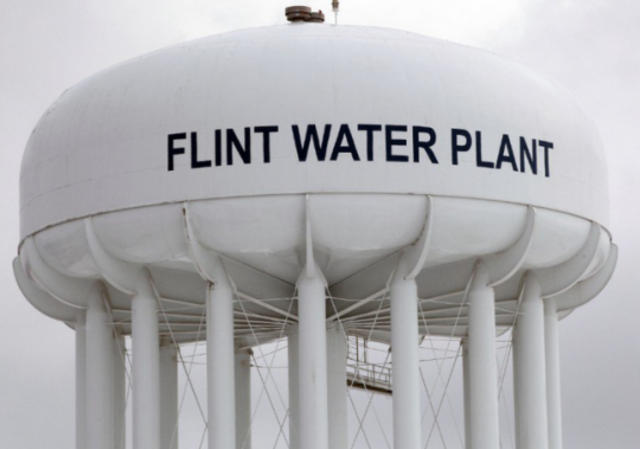Flint files “intent to sue” Michigan over #FlintWaterCrisis
Shifting the blame

The last time we checked on Flint, we learned that the regional Environmental Protection Agency team indicated the city was “not worth going out on a limb for.”
Perhaps not, but the city now is facing over 50 lawsuits because the EPA decided it didn’t need to take any action upon learning about the elevated lead levels in the municipal water supply.
More than 50 lawsuits have been filed since January, accusing the city of being complicit in the water crisis for not doing enough during the 18 months in which Flint was getting its drinking water from the polluted Flint River.
That move was a decision made by the state, and it turned out to be a terrible one. The river’s highly corrosive water wasn’t treated properly by the Michigan Department of Environmental Quality, and the water corroded lead service lines, which then caused lead to seep into the drinking water and poison families.
The poor water quality also caused brown water and high levels of E. coli, carcinogens and other toxins to thrive in the water. Residents reported painful rashes after showering. Several ongoing investigations are looking into whether the bad water also led to an outbreak of Legionnaires’ disease that killed 10 people.
Although the city had no control over decision-making at the time the switch was made, its employees were involved in treating the water at the plant, and involved in testing residents’ water for the state.
Now, Flint’s mayor has filed an intent-to-sue the Sate of Michigan:
[Mayor Karen] Weaver’s March 24 filing with the state Court of Claims cited “grossly negligent oversight” by the Department of Environmental Quality, whose decisions not to require corrosion control chemicals led to lead leaching into the drinking water and “irreversible” damage to municipal infrastructure.
The filing was intended to preserve Flint’s ability to sue the state, according to Weaver, who said she does not plan to exercise that right at this time.
“It is my expectation that we can continue working with the state to help Flint recover from this water crisis,” Weaver said in a statement. “I called Governor Snyder today to re-affirm our commitment to work together for the benefit of the families of Flint.”
Representatives of the state are upset with the development, in light of all the aid Flint has already received. Ari Adler, a spokesman for Governor Rick Snyder, indicated that Michigan would withdraw that offer assisting Flint cover its legal fees if the city filed a lawsuit.
As of March 3, the Legislature had appropriated $67.4 million to address the Flint crisis, and Snyder had requested another $165 million.
House Speaker Kevin Cotter, R-Mt. Pleasant, who earlier said the House would not consider further supplemental budget appropriation requests for Flint outside of the regular budget process, said Friday “a reckless lawsuit could throw the state budget into disarray and undermine everything we’ve done for the city.”
Arguably, bringing a lawsuit against the EPA would be justified. I sure hope Weaver follows the example of others who have been the victim of bureaucratic bungling by that agency on a truly national scale.
Donations tax deductible
to the full extent allowed by law.








Comments
I should hope that a legal blog would know that under the Clean Water Act the primary responsibility for implementing EPA regulations (here the Lead and Copper Rule) lies with the City of Flint, and more specifically with the water treatment plant operator, who must certify monthly that the water produced by his plant meets all relevant federal and state quality requirements (for lead and copper the tests are conducted in household taps). If there is any liability at the state level, it lies in the fact that the State did not prosecute the City and the operator in court. The fact that Flint was not held to the usual standards is interesting in and of itself.
Anyone fimiliar with the current state of law knows that when dealing with a specialized area of law, it is best to bring on a specialist in that area.
Since our government endeavours to be as opaque and complicated as possible, nobody is an expert in all areas.
Plant operators, whether water, sewer, steam, chemical, whatever, are ALWAYS responsible for their plants and their actions. A good operator has to be willing to tell his bosses”NO!” And mean it. Shutting down the operations if they’re not being run safety or IAW established law or regulation. In bureaucracies, with no profit motive, good plant operators are called “troublemakers” because they insist on doing things the right way.
Plant operations is one of those behind the scenes out of sight out of mind jobs that the big bosses are always looking at to cut costs. Deferred maintenance is about the only way to do it, in any particular fiscal year. But it eventually catches up with you, and ends up being far more expensive than having done it all along.
They don’t have beer in Michigan?
Given time enough, water will dissolve a battleship, why would anyone want to drink it?